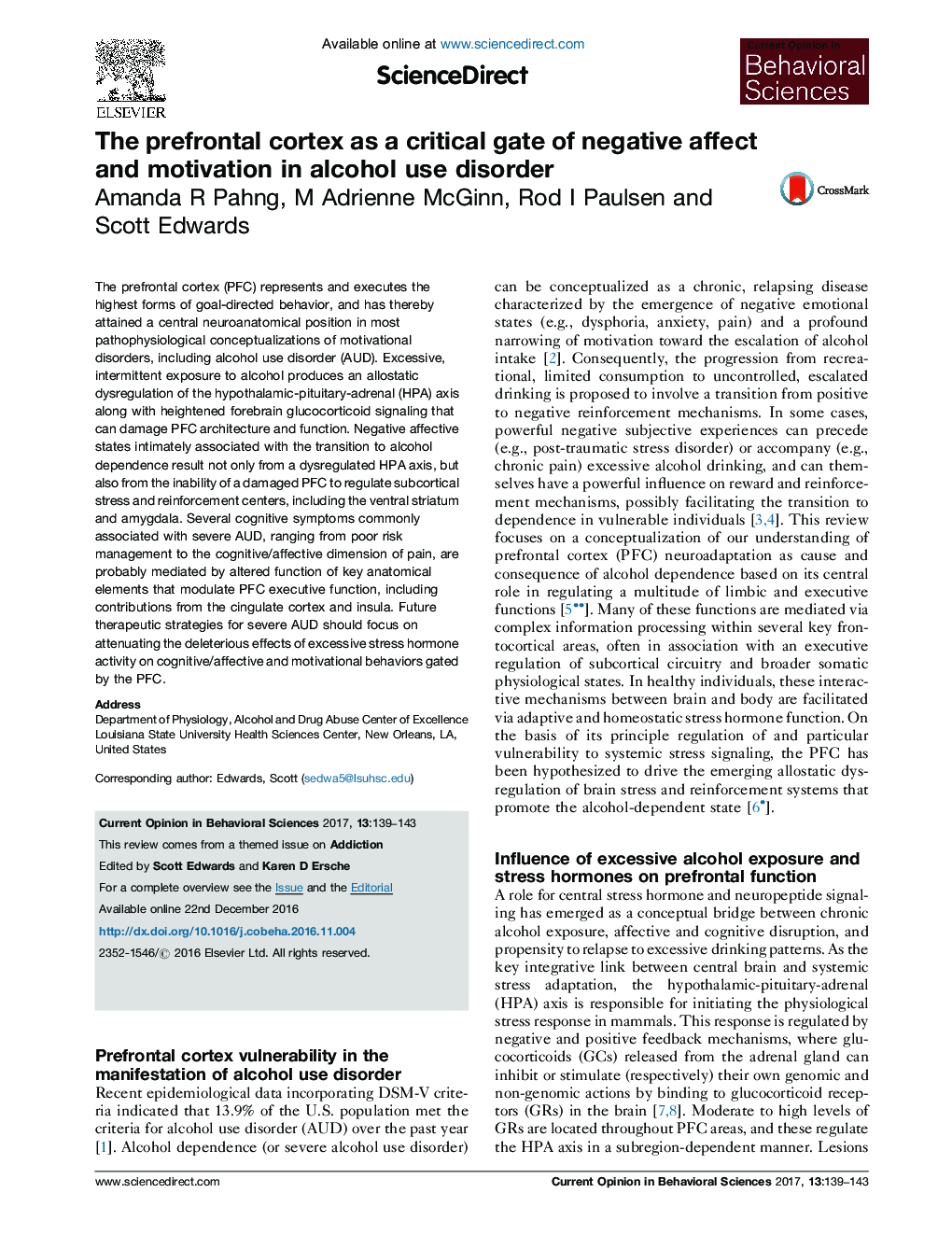| کد مقاله | کد نشریه | سال انتشار | مقاله انگلیسی | نسخه تمام متن |
|---|---|---|---|---|
| 6260328 | 1613077 | 2017 | 5 صفحه PDF | دانلود رایگان |
- The prefrontal cortex (PFC) is a key gate for alcohol use disorder (AUD) symptoms.
- AUD symptoms regulated by the PFC include compulsive drinking and pain.
- PFC glucocorticoid receptor (GR) signaling facilitates negative affect and relapse.
- Reducing GR signaling restores PFC functionality and may reduce heavy drinking.
The prefrontal cortex (PFC) represents and executes the highest forms of goal-directed behavior, and has thereby attained a central neuroanatomical position in most pathophysiological conceptualizations of motivational disorders, including alcohol use disorder (AUD). Excessive, intermittent exposure to alcohol produces an allostatic dysregulation of the hypothalamic-pituitary-adrenal (HPA) axis along with heightened forebrain glucocorticoid signaling that can damage PFC architecture and function. Negative affective states intimately associated with the transition to alcohol dependence result not only from a dysregulated HPA axis, but also from the inability of a damaged PFC to regulate subcortical stress and reinforcement centers, including the ventral striatum and amygdala. Several cognitive symptoms commonly associated with severe AUD, ranging from poor risk management to the cognitive/affective dimension of pain, are probably mediated by altered function of key anatomical elements that modulate PFC executive function, including contributions from the cingulate cortex and insula. Future therapeutic strategies for severe AUD should focus on attenuating the deleterious effects of excessive stress hormone activity on cognitive/affective and motivational behaviors gated by the PFC.
Journal: Current Opinion in Behavioral Sciences - Volume 13, February 2017, Pages 139-143
